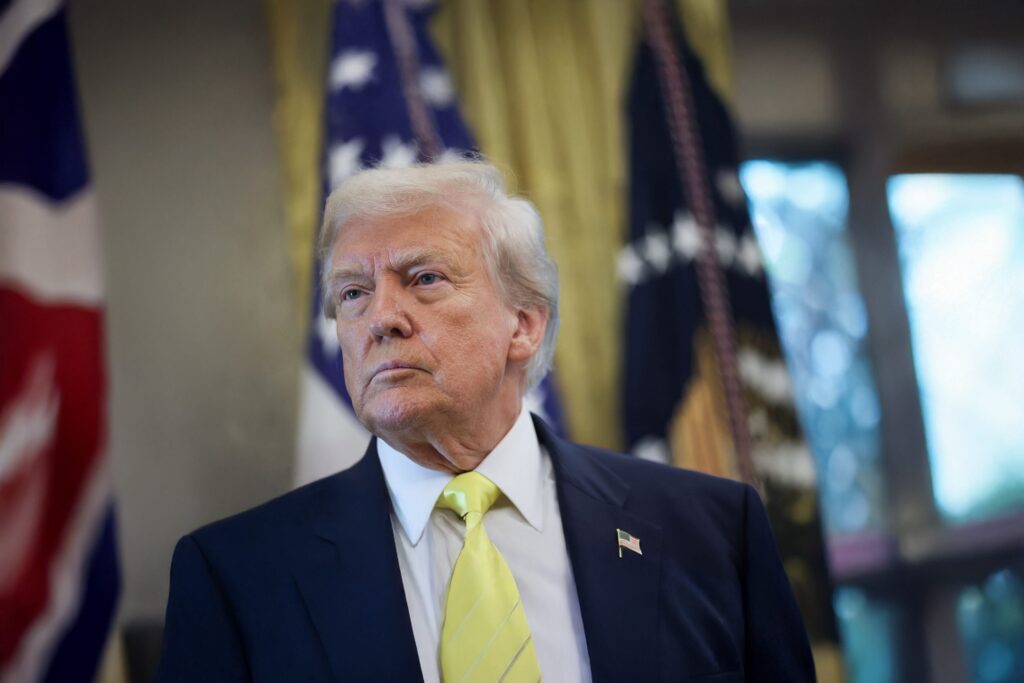US President Donald Trump has announced a new package of import tariffs. Beginning October 1, branded and patented medicines shipped to the United States will face a 100 percent duty if the producing company does not operate factories on American soil.
Washington will also introduce a 25 percent tariff on heavy-duty trucks. Kitchen and bathroom cabinets will be hit with a 50 percent levy. Trump outlined the measures on Thursday, framing them as necessary to defend US industries.
He said on Truth Social that a “flood” of imports forced his hand. He argued the tariffs would protect domestic manufacturers from unfair pressure.
The announcement comes despite warnings from American businesses urging the White House not to impose further duties.
Pharmaceutical industry reacts to US tariffs
Neil Shearing, chief economist at Capital Economics, said the move was less dramatic than it first appeared. He explained that generic drugs are exempt, and companies building plants in the US are also excluded.
Shearing pointed out that many of the world’s largest pharmaceutical firms already produce in the United States or have announced plans to expand.
Ireland’s Trade Minister Simon Harris referred to the August 21 agreement between Washington and Brussels. He said the deal capped US tariffs on European pharmaceutical exports at 15 percent.
The United Nations reported that Britain exported more than six billion dollars’ worth of medicines to the US last year.
A separate trade deal signed in June between the US and the UK pledged “preferential treatment outcomes on pharmaceuticals.”
A UK government spokesperson described Trump’s new tariffs as concerning. The spokesperson said Britain would continue close engagement with Washington in the days ahead.
UK drugmakers expand American footprint
GlaxoSmithKline already operates plants in the United States. Last week, the company pledged to invest 30 billion dollars in US research and manufacturing over the next five years.
AstraZeneca also has facilities in America. In July, it announced plans to invest 50 billion dollars in the country by 2030.
William Bain, head of trade policy at the British Chambers of Commerce, stressed that such commitments should protect UK companies from new tariffs. He highlighted the scale of advanced manufacturing projects already underway.
Several pharmaceutical firms recently abandoned planned investments in Britain. They cited an unfavourable business climate for the sector.
Jane Sydenham, investment director at Rathbones, said Trump’s policies played a major role in these decisions. She argued that his tariff agenda created uncertainty that outweighed concerns about Britain’s low growth.
Heavy trucks and home goods in focus
Trump said the new duties on heavy trucks would shield US manufacturers from unfair competition. He said companies such as Peterbilt and Mack Trucks would benefit directly.
He also confirmed tariffs on kitchen and bathroom cabinets and other furniture. He argued that high levels of imports were harming domestic producers.
Starting next week, upholstered furniture will face a 30 percent duty.
Swedish furniture group Ikea said the tariffs make operating conditions more difficult. The company said it is closely monitoring the situation.
Tariffs remain cornerstone of Trump’s economic agenda
Tariffs are central to Trump’s economic policy in his second term. Sweeping levies on more than 90 countries came into effect in August. The goal is to strengthen US manufacturing and create jobs.
Earlier measures targeted steel, copper, aluminium, cars and auto parts.
The US Chamber of Commerce warned against fresh tariffs this year. It noted that most truck parts come from Mexico, Canada, Germany, Finland and Japan.
Mexico and Canada supplied more than half of all imported medium and heavy truck parts to the US last year. The chamber said producing them domestically was unrealistic and would push costs higher.
Experts warn consumers will face higher costs
Trade expert Deborah Elms of the Hinrich Foundation said the new tariffs clearly favour US producers but are “terrible” for consumers. She said prices will inevitably rise.
She explained that the measures cover more products and higher rates than Trump’s earlier reciprocal tariffs, which focused on trade imbalances.
Elms added that the industry-specific tariffs could serve as a fallback. They could generate revenue if broader global measures are struck down in court.


